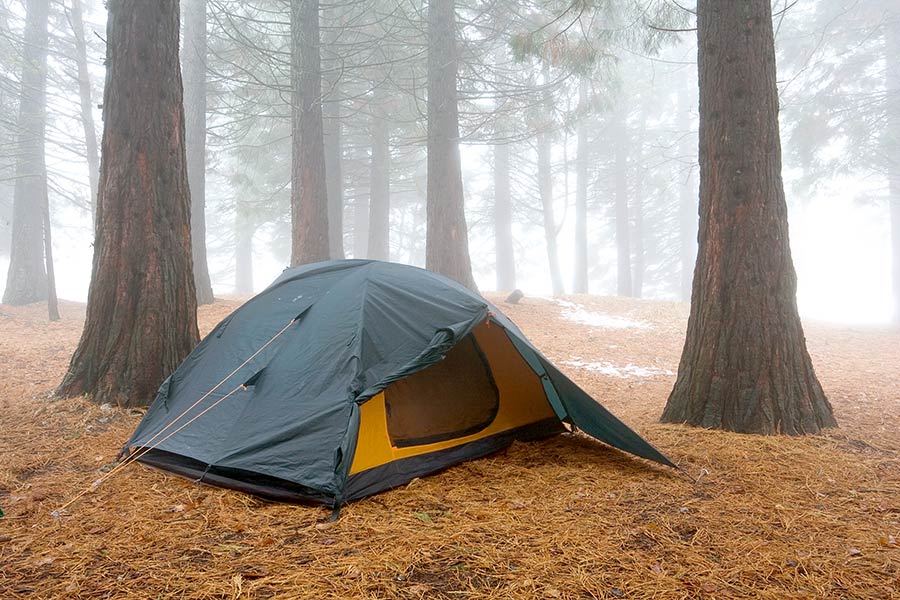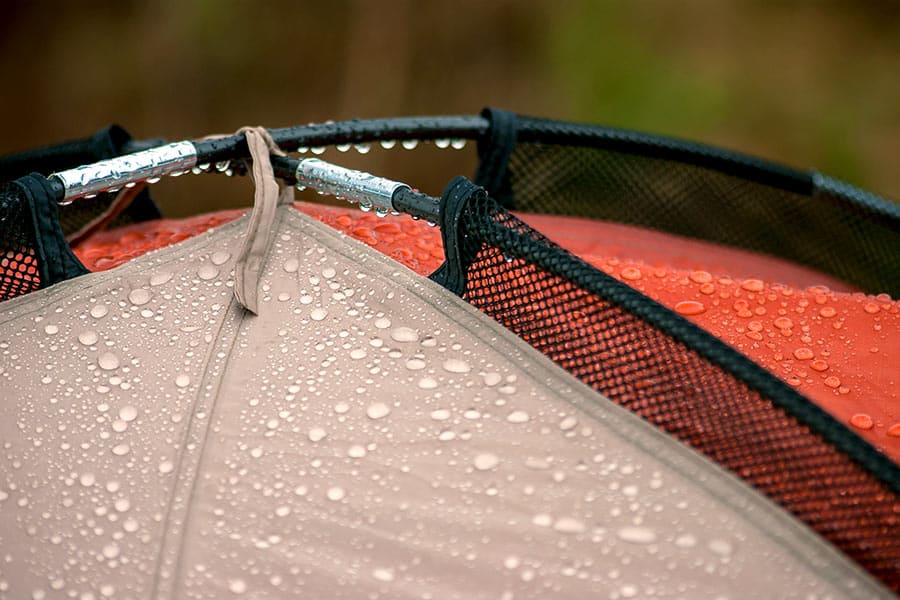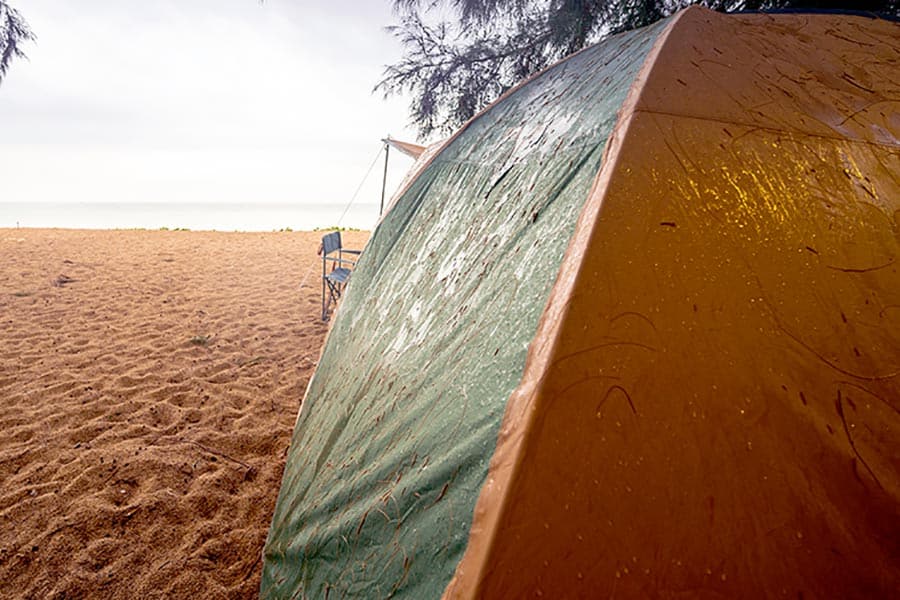
Are you a camping enthusiast who loves to spend time in the great outdoors? If so, a tent is a must-have for any camping trip. But, as with any investment, you want your tent to last as long as possible. Therefore, one of the questions that often arises is whether or not you need to waterproof your tent every year.
With regular use, it’s recommended to waterproof your tent every 1-2 years. If you have a high-quality tent and don’t use it frequently, you may not need to waterproof it yearly. However, if you use your tent often or have a lower-quality tent, it’s recommended to waterproof it annually to protect it.
In the following sections, we will provide additional information, some helpful tips for waterproofing your tent, and discuss how proper maintenance can help prolong the life of your tent.
Don’t Neglect Your Tent – Waterproof
Waterproofing provides a protective barrier to shield your tent from water damage, mold, and mildew. In addition, it is a crucial step in maintaining the quality of your tent fabric, thus, aiding in prolonging its lifespan and keeping it in great shape.

Whether you need to waterproof your tent every year largely depends on the quality, usage, and condition of your tent. For example, if you use your tent only a few times a year in dry conditions, waterproofing it every year might not be necessary.
However, if you often camp in humid or wet surroundings or reside in areas with frequent rain or high humidity levels, it’s advisable to waterproof your tent annually or even more frequently to ensure its longevity. It’s a good idea to check your tent thoroughly before each camping season and after heavy rain to evaluate its condition.
It’s important to note that various tent materials require different levels of waterproofing. For instance, silicone-coated nylon or polyester may not need as frequent waterproofing as untreated canvas or cotton. To determine the appropriate waterproofing frequency for your tent, refer to the manufacturer’s guidelines that are specific to your tent material.
Keeping your tent dry is essential for safeguarding it from environmental factors and increasing its durability. However, the waterproof layer on your tent can deteriorate with extended use or damage, making it vulnerable to leakage. Thus, regularly waterproofing your tent preserves it from potential leaks and helps extend its lifespan.
Applying a waterproofing spray or seam sealer are two methods to waterproof your tent. A waterproofing spray effectively treats the tent’s exterior, and a seam sealer is best for covering interior seams. Follow the instructions specified by the manufacturer for the chosen product, and ensure that the tent is dry and clean before applying the waterproofing remedy.
The Importance of Keeping a Tent Properly Waterproofed
Keeping a tent properly waterproofed is crucial for several reasons. Firstly, an unwaterproofed, wet tent can make for an uncomfortable camping experience, exposing you, your gear, and your electronics to moisture, dampness, and incompatibility. In addition, when water seeps into the material, mold, mildew, or bacteria can develop, causing unpleasant smells.
Moreover, water can cause damage to the tent material, decreasing its lifespan and eventually leading to replacement. Dampness can even weaken the tent’s structure, resulting in tears or leaks and reducing the tent’s overall durability.

Overall, properly waterproofing your tent ensures an enjoyable, comfortable camping experience while minimizing the chances of damage or reduced usability.
Other Posts of Interest
- 7 Unique Tent Camping Experiences To Try: Dare To Be Different
- What Color of Tent is the Coolest? (Which Shades Work Best)
- Do Tents Often Get Stolen at Campsites?
- Can You Use a Tarp as a Tent Footprint?
Difference Between Waterproofing Spray and Seam Sealer
The primary difference between a waterproofing spray and a seam sealer is their application and location in the tent.
A waterproofing spray is typically applied to the exterior of the tent to create a water-resistant barrier over the tent material. It usually contains silicone, fluoropolymer, or wax-based substances that repel water from the fabric’s surface to help prevent leaks. Waterproofing sprays are particularly effective for tents made of synthetic materials like nylon and polyester.
On the other hand, a seam sealer is applied to seams and stitching on the interior of the tent. Seam sealer serves to seal the needle holes that stitch seams and patches, thus blocking water from penetrating through the stitches of the fabric. This type of sealant ensures that every seam in the tent is sealed completely, minimizing the chances of water penetrating through the stitches, particularly for tents made with natural fibers such as cotton and canvas.
In summary, waterproofing spray is sprayed on the exterior surface of the tent, while seam sealer is typically applied to seams on the tent’s interior. As a result, the waterproofing spray provides overall tent protection, whereas the seam sealer helps prevent seams from tearing, thus prolonging the tent’s lifespan.
Maximizing Your Tent’s Lifespan
It is essential to refer to the manufacturer’s recommendations for your specific tent’s sealant requirements, as using the wrong type of sealant may be ineffective and damage the tent. Always be sure to use the appropriate sealant to guarantee optimal results for your tent, and prolong its lifespan.
Proper maintenance, such as keeping your tent clean, dry, and properly stored, can help prevent damage and prolong the life of your tent. In addition, when you take care of your tent, you can go for longer periods without waterproofing it. Ultimately, whether you need to waterproof your tent annually depends on the condition and age of your tent, but it’s always better to err on the side of caution and fix any issues before they become more significant.
A Necessary Task
Camping with a tent can be an incredible experience, allowing you to enjoy the beauty of nature. However, keeping your tent waterproofed and protected against the elements is a necessity. The process of waterproofing your tent might seem daunting, but it is an essential step that ensures lasting comfort and overall enjoyment.
Evaluating the usage frequency, weather conditions, and tent material is necessary to determine the best waterproofing schedule. Although it may not require annual waterproofing, being sure that your tent stays properly waterproofed is important for comfort during camping trips in the long run.






